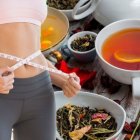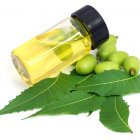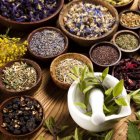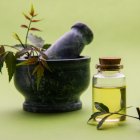Related articles
-
 Ever Wondered How to Make Paneer at Home? Here is the Complete Guide to Take Out Soft and Creamy Paneer from Milk at Home (2021)
Ever Wondered How to Make Paneer at Home? Here is the Complete Guide to Take Out Soft and Creamy Paneer from Milk at Home (2021)
-
 Gained Extra Weight in the Lockdown? Best Slimming Tea to Get in the Right Shape and Live a Healthier Life
Gained Extra Weight in the Lockdown? Best Slimming Tea to Get in the Right Shape and Live a Healthier Life
-
 From Usage in Skincare to Treating Wounds Quickly, Castor Oil Has a Lot of Applications You May Have Never Heard of: Benefits of Using Castor Oil (2021)
From Usage in Skincare to Treating Wounds Quickly, Castor Oil Has a Lot of Applications You May Have Never Heard of: Benefits of Using Castor Oil (2021)
Monsoon Diaries
Many of us love the monsoon season. It is mainly to do with the romantic rains, the picturesque views that we get to see of the sky after a shower, and of course the relief it brings from the oppressive heat. But not everything is good about the monsoon season. To begin with, it brings with it, its fair share of diseases, and then there is the problem of flooding in some areas due to excessive rainfall causing untold damage of lives and property. While monsoon season is not directly responsible for floods (bad drainage system is), it sure is responsible for some of our health issues. Let us look at some of them.
6 Common Monsoon Diseases
There are a myriad of diseases that we can suffer from during the monsoon season. They can range from something as simple as the common cold to something complicated like leptospirosis. Let us have a close look at 6 of the diseases:
Common Cold and Flu
Common cold and flu are rampant during the monsoon season because they are caused by the sudden change in weather and temperature fluctuations in the environment both of which are characteristic of monsoons. The symptoms of the common cold are fever, aching muscles, runny nose, sneezing, and congestion. The biggest deterrent of the common cold during the monsoon is a robust immune system and so it is important to increase your Vitamin C intake during this time of the year.
Viral Fever
Viral fever happens throughout the year but is more common during the monsoon months. Some symptoms of this illness are high fever for a prolonged period, fatigue, dizziness, weakness, body chills, and muscle, body, and joint pain. You are expected to experience loss of appetite as well.
Mosquito Borne Diseases
Mosquito-borne diseases are synonymous with the monsoon season. Mosquitoes breed in stagnant water and there is an abundance of that during the rainy season. 3 mosquito-borne diseases are malaria, dengue, and chikungunya. Anopheles mosquitoes cause malaria. Symptoms of this disease are high fever, body chills, body aches, and sweating. Dengue is caused by the bite of the Aedes aegypti mosquito and symptoms include high fever, rashes, headache, hypersensitivity, and low palette count. Chikungunya is caused by the Aedes albopictus mosquito and symptoms of this disease are as follows - high fever, fatigue, chills, and acute joint pain.
Typhoid
Typhoid is a monsoon related disease that is highly infectious. It is caused mainly by contaminated food and water. Typhoid is an illness that can put you on the bed for over a month. It is accompanied by prolonged high fever, loss of appetite, vomiting, constipation, headaches, weakness, and abdominal pain.
Cholera
Though cholera has become extremely rare, thanks to advanced healthcare, yet it is still possible to contract it. Cholera is a life-threatening disease that is mainly caused by contaminated food and water and poor personal hygiene. If not treated immediately, then cholera can cause death within a few hours. Some symptoms of cholera include low blood pressure, muscle cramps, dry mucous membrane, and rapid heart rate.
Leptospirosis
Leptospirosis is a bacterial infection that is transmitted from animals to humans. The bacteria enter the human body through an open wound. In most cases, it has been seen that leptospirosis patients have contacted it after wading through waterlogged areas with an open cut in the feet or thereabouts. Symptoms of leptospirosis are high fever, headache, muscle aches, rashes, abdominal pain, and diarrhea.
Health Tips for the Monsoon Season
Monsoons bring a host of diseases as has been made clear in the above paragraphs, but seasonal health issues can be prevented by taking certain precautions during that season. These precautionary measures are simple and can be adopted on a daily basis to achieve good health in the long run. This BP Guide tells you some monsoon health tips you can consider in the monsoon seasons:
Be Careful of Your Diet
Our physical health is intimately connected to our stomach. Good and bad health depends on our food habits. Monsoon season is a very vulnerable time for our bodies because it is during this time that viruses and bacteria thrive. Allergic reactions, viral fevers, viral infections, etc become rampant and you need to increase your immunity against them. One of the ways to do that is to eat more fruits and vegetables that are rich in Vitamin C. So, include more fresh green vegetables and citrus fruits in your diet during the monsoon months.
Don't Let Stagnant Water to Accumulate
The monsoon season is the perfect time for the breeding of mosquitoes. These nasty little insects not only irritate you but is also responsible for some dangerous maladies. There is only one way to prevent the breeding of mosquitoes around you and that is to not let water stagnate. Avoid keeping your buckets filled in your washrooms and even if you have to store water that way then cover those buckets with some sort of a lid when you are not using it. Similarly, make sure that there are no clogged drains around your house or any place where there is water stagnation.
Maintain Personal Hygiene
Maintaining personal hygiene is the first step toward good health. No nutrient-rich food or healthy food habits can keep diseases at bay if you do not maintain personal hygiene. Have regularly preferably with water mixed with a disinfectant. Shampoo no less than 3 times a week and scrub your body with a medicated soap every day. Wash your hands with a hand wash frequently and keep your nails trimmed and clean. Get out of the habit of chewing your nails as that is how pathogens enter your body.
Air Conditioning Rules
Do not enter an air-conditioned room when you are wet. Air conditioners release drafts of cold air that will give you a terrible case of the common cold after it comes in contact with your wet clothes and skin. It is common during the rainy season to get wet because of sudden showers while commuting. Always carry a towel with you so that you can dry off before you enter your air-conditioned office or home.
No Wet Shoes
Don’t let your shoes get wet. It is quite a daunting task trying to keep your shoes clean off the mud and water puddles on the street during the rainy season but you have to do so as pathogens grow in wet shoes and socks. Wear only waterproof shoes during this season and avoid wearing socks. Always wash your feet after every commute. It is better to wear uncovered shoes than covered shoes during the rainy season. That way it would be easy to clean your feet and it will dry faster. Nonetheless, carry an extra pair of shoes with you for emergencies.
Take a Shower After Getting Drenched in the Rain
Take a shower immediately after you get drenched in the rain. By doing so, you are stabilizing your body temperature that has suddenly dropped because of getting drenched. Such fluctuations in body temperature will cause a common cold. So, after getting drenched, take a good shower and dry yourself properly.
Keep Your House and Surroundings Free of Pest
Pests and humans are not meant for coexistence. Pests carry pathogens that cause diseases in humans. Pests increase manifold during the monsoon season and hence it is important to keep your surroundings free of pests. Spray the surroundings of your home with a good pest control medicine. Take measures against cockroaches, Beith, ants, and other insects’ infestation in your home.
Ensure You Drink Only Filtered/Boiled Water
Water is another common source through which pathogens enter our bodies. Every time we drink unfiltered water, we risk getting infections and diseases from these pathogens. So, do not drink water that is unfiltered. If there is no facility of a filter available in your house then drink boiled water. The high temperatures of boiling water kill all the pathogens present in it thus rendering the water safe for drinking.
Reduce Consumption of Raw Veggies
During the monsoons, it is important that you consume only cooked vegetables. The skins of vegetables have pathogens on them which do not get removed in their entirety even after thorough washing. To avoid getting any waterborne illnesses, consume only cooked vegetables. It is better to avoid eating salads during this time of the year and even if you eat them, eat steamed salads instead of the raw ones.
Keep Mosquitoes Away
We have talked about not allowing mosquitoes to breed around you by not having stagnant water. Now we must ensure that we are completely protected against these nasty insects. To begin with, always wear a mosquito repellent cream or lotion when you are outdoors. Keep your mosquito repellent machine switched on throughout the night especially where you are sleeping. Wear light coloured clothing as much as possible so as not to attract mosquitoes (they get attracted to dark colours).
Avoid Street Food As Much As Possible
Street food is neither healthy nor hygienic. You will notice that most of the street food items compromise health for taste. Moreover, our outdoors is not at all clean with dust particles and dirt ruling it and our street food vendors never cover the food they sell. During the monsoon seasons, the already dirty outdoors gets even dirtier what with the water-filled potholes being perfect incubators for pathogens. This unhealthy and unhygienic food will wreak havoc with your immune system which needs to be at its best during the rainy season. So, avoid street food at all costs and even if have them, consume them in moderation.
Products You Should Get This Monsoon Season
You have got 11 health tips to consider and follow this monsoon season. Followed diligently, these health tips will keep you hale and hearty in the season when most suffer from some of the other illnesses. Nonetheless, there is no harm in boosting your monsoon health regime with some external help. Following are 4 products that will come in handy during the monsoon season:
Absorbia Moisture Absorber
Dampness is one big problem during the monsoon season. General dampness of clothes and homes during the rainy season is one of the chief causes of common cold and flu. Also, too much moisture encourages the growth of fungus. As such, it is a smart move to use dehumidifiers in this season. Absorbia Moisture Absorber is the perfect product for this. It traps excess moisture removing the dampness and extra moisture from your home.
This is a season pack consisting of 6 boxes. The boxes are shaped as such that you can place it conveniently in the required area. You can use it in the rooms, wardrobes, shoe racks, and cabinets. This pack comes at a price of Rs. 898.
Dettol Disinfectant
This Dettol Hygiene Regular liquid neutralises more than 100 disease-causing germs and bacteria. You can use it both for personal as well as home hygiene. It is safe to use on the skin so you can mix some in your bathwater. Dilute some of this liquid in the water you would be using for cleaning the floor and you would kill any germ and bacteria manifestations. This bottle contains 200 ml of the liquid and costs Rs. 98.
Lifebuoy Handwash
Lifebuoy Total 10 is the best hand wash for protection against germs and harmful bacteria. It removes most of the illness-causing germs and bacteria from your hands with every wash. Take a little of this hand wash and scrub your hands for about 10 seconds in each wash for the best results. This bottle contains 190 ml of this product and comes with a refill pack of 185 ml. They cost Rs. 85.
Bio Toxin Spray
This is one of the most important products to have during the monsoon season. This is a pest control spray from Biotoxin that has an organic formula and is effective against almost all types of pests found inside the house and outside. This product is a must-have if you have a garden. Monsoon season is the perfect breeding time for pests and hence having this spray during that time will be an added layer of protection for you and your family. This ready to use spray comes in a 500 ml spray bottle and comes at a price of Rs. 650.
Related articles
-
 Make the Miraculous Neem Oil a Part of Your Daily Life: Discover the Numerous Uses of Neem Oil and How It Can Give You a Radiant Skin, Lustrous Hair and Overall Health and Wellbeing! (2021)
Make the Miraculous Neem Oil a Part of Your Daily Life: Discover the Numerous Uses of Neem Oil and How It Can Give You a Radiant Skin, Lustrous Hair and Overall Health and Wellbeing! (2021)
-
 Acne: Causes and Remedies! Get Rid of Acne with These 10 Potent Home Remedies for Pimples!
Acne: Causes and Remedies! Get Rid of Acne with These 10 Potent Home Remedies for Pimples!
-
 Is Your Skin Looking Dull and Lifeless? Follow Our Skin Care Tips and Adopt These 5 Healthy Habits and Watch Your Skin Glow Vibrantly (2020)
Is Your Skin Looking Dull and Lifeless? Follow Our Skin Care Tips and Adopt These 5 Healthy Habits and Watch Your Skin Glow Vibrantly (2020)
-
 Hair Fall: Causes, Home Remedies and Prevention! 10 Home Remedies for Hair Fall You Can Try Safely at Home!
Hair Fall: Causes, Home Remedies and Prevention! 10 Home Remedies for Hair Fall You Can Try Safely at Home!
-
 Looking for a Natural Way of Healing Your Body and Rejuvenating Your Soul? Check out the Top Books on Ayurveda to Discover and Adopt the Miracles of This Ancient System of Medicine (2021)
Looking for a Natural Way of Healing Your Body and Rejuvenating Your Soul? Check out the Top Books on Ayurveda to Discover and Adopt the Miracles of This Ancient System of Medicine (2021)
This Year is the Time to Be Extra Careful!
With the pandemic already looming around us, make sure you're extra careful and responsible every time you step out and also make sure that you follow the tips listed above. This is because the healthcare system is already overwhelmed, and it's for the best to be safe than sorry.